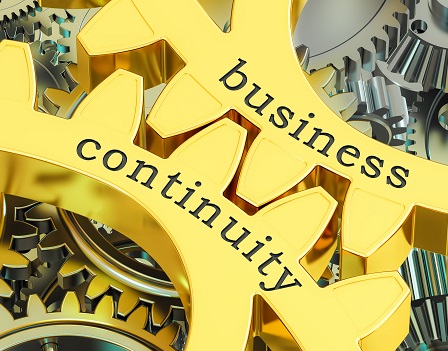
The first time I ever heard the term “bug out” was as a teenager watching an episode of M*A*S*H. For those too young to even remember the series, M*A*S*H was a sitcom about a mobile surgical hospital during the Korean War. In the season 5 premiere, the entire camp was forced to hastily “bug out” (meaning relocate) to avoid the approaching enemy. They had to literally relocate the entire camp quickly and be prepared to perform surgery on a moment’s notice. Being a sitcom, of course, they encountered some funny moments (and borderline inappropriate ones, at least by 1976 standards) on their quest. Of course, by the end of the episode, everything had returned to war-zone normal. I thought “bug out” was such an odd term, and it’s always stuck with me.
Now, I keep thinking about bugging out as it relates to the current environment, with widespread concern over the COVID-19 virus. Events are being canceled, travel plans interrupted, businesses are suffering, markets are getting whipsawed*, and so on. Most importantly, there is a very real human toll around the world, with thousands suffering and a growing number of deaths. And it will all surely get worse, perhaps much worse, before it gets better.
Life is going to be interrupted for most, if not all, of us in some trivial ways and other more meaningful ones. But our job, as stewards of our clients’ assets, can’t stop because of disruptions such as these, regardless of how significant they are. Our responsibility to our clients is ongoing.
So what happens if Strategic Wealth Partners needs to bug out? The short answer is: We are prepared. We could soon face a situation where:
- An entire office is inaccessible because of a situation in a building, or is part of a “containment zone.”
- An employee is in quarantine because they contract the virus or have had contact with someone who has tested positive.
- Parents need to stay home to care for children because schools are shut down.
As events of the last few days have shown, these are not farfetched scenarios, and we are preparing for these possibilities and more.
A few years ago, the Securities and Exchange Commission proposed a rule that all registered investment advisors must have a Business Continuity Plan (BCP) in place. Oddly, the rule was never implemented, but it’s just good business sense to have a BCP, and we do. This document specifies how the business would function in the event of a disruption to our facilities. Our Business Continuity Team met just this week to review the details, and we have reminded the entire staff of the provisions.
Following are some of the specifics of our plan and overall preparedness:
- We are fortunate to have offices in Deerfield, Illinois, and Milwaukee, Wisconsin. We also have a shared office suite in downtown Chicago where many of our folks work from time to time. Deerfield and Milwaukee are only 75 minutes apart, so at least some of our staff could work in another office if one were shut down temporarily.
- Our entire network and all applications are cloud-based with state-of-the-art security. So we are able to work from any location with an internet connection. Many of our team members work from home from time to time and are fully functional when they do so.
- These cloud-based systems allow us all the same functionality that we have from the office, including such critical tasks as trading and money movement.
- Many of us already use laptops, so we are truly a mobile work force that can work from anywhere.
- In the last 72 hours, each of our employees has checked their home or laptop setup, including our remote telephone system, and confirmed that they are fully functional. And they have confirmed that they have anti-virus software installed.
- While we do still have some paper forms and files, the volume of paper has decreased dramatically over the years, with everything stored on our network. So not having access to our office for a period of time is not a great hardship. The few forms or other documents that do need to be printed can be done from a remote location. In addition, we lock up all client-related documents each evening, so an empty office would not expose confidential information.
- In the event of a sudden need to close the office, our BCP has a calling tree system with team leads that will alert others and implement the provisions of our plan. There is also a group text feature in place for communications among the entire staff.
We actually do a mini-test of our plan every year. While we are open for business until noon on the day after Thanksgiving, we allow employees to work from home. Each employee confirms that their office phone is successfully routing to their cell phone, and that they can access our network.
Separately, and in response to the current health crisis, there are a few other steps we have taken in an effort to keep our team, our clients, and our community safe:
- We have suspended work-related travel
- We have canceled attendance at large conferences or other gatherings
- We are offering our clients more telephone, email, and virtual client meetings, rather than coming to our office
- We have always told our staff to stay home if sick, and have reminded everyone that it is particularly important today
We don’t pretend that we have thought of every contingency. And we realize that bugging out will create some hardships and inconveniences for all. But we are fully confident that we will be able to continue to fulfill our primary role – taking good care of the finances for our many clients. I personally take great comfort that we’ve thought this through as thoroughly as possible, and I hope you do too.
As always, please reach out with any questions or concerns.
* This piece is not meant to be a commentary on the markets – for a great discussion of that, please see my colleague Andrew Denenberg’s article here. While Andrew’s post was written way back on February 26, 2020, the message is still very relevant today.


